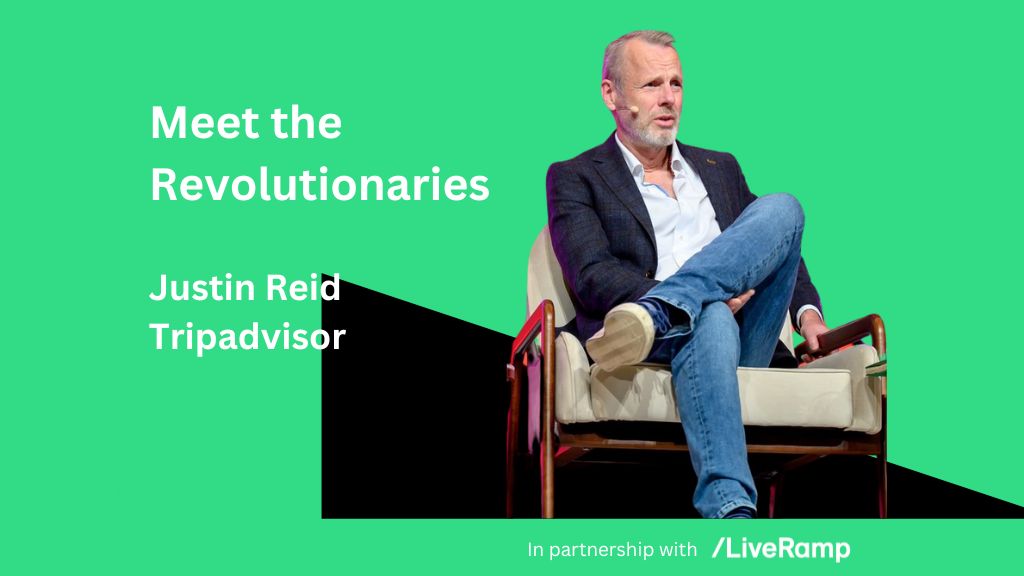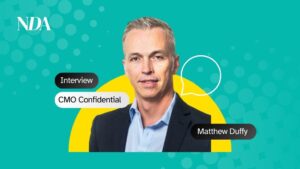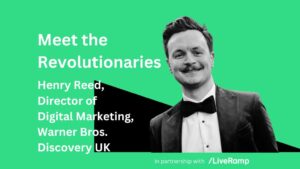New Digital Age, in association with Liveramp, is spotlighting the men and women championing a data-led revolution in the marketing industry. The ‘Meet the Revolutionaries’ interviews focus on the efforts of the marketing professionals navigating a new era of data collaboration.
Here, Justin Reid, Senior Director of Media Partnerships for EMEA and Asia Pacific at Tripadvisor, shares his experiences of encouraging innovation inside the travel sector…
Tell me about your role at Tripadvisor.
My background has always been in travel and tourism. I started my career at VisitBritain, back when we were the first national tourist board to create a presence on social media. I then moved into the agency side, working in a variety of branding and marketing roles, but my heart was always in the travel business.
When the chance came up in 2014 to join Tripadvisor, a company I’d always admired, I grabbed it. Initially, I worked in a role that marketed specific locations to undecided people, but when Covid hit, the business merged different parts of its media advertising business into one department and I was lucky enough to be the man asked to lead that.
My remit now covers media partnerships with Hotels, Online Travel Agencies, Destinations and what we call Growth brands, which is basically any brand not directly related to travel, such as Visa, Petcare and L’oreal. It’s given me a great opportunity to get out of my comfort zone and actually develop a much broader perspective on Tripadvisor as a media platform.
Can you give me an example of a time when you personally have helped to drive innovation?
One area where we’ve driven a big impact is in how destinations now measure the success of their campaigns. Back around 2015, all the big national tourism agencies had “traffic to our website” as their main KPI, which seemed arcane. The point of the campaign should be to grow more interest in your country and to encourage more people to visit.
So we worked on a major project, looking at the data we had and the insights that it could deliver for us and our media partners. In the UK alone, we have 23 million visitors to our site every month, and 400 million worldwide. It may not be 100% of the travel audience but it’s largely reflective of what the travel audience is doing.
We then partnered with various destinations, working on strategies to target new customers with media about those destinations, and measuring the impacts we saw in terms of bookings for flights, hotels, restaurants and attractions in that location. That was quite revolutionary for the sector, as we were able to demonstrate ROI of up to 40-to-1 in some cases. Those findings, in turn, led some national tourism bodies being given increased marketing budgets by their governments.
What are the most common challenges to innovation?
With government bodies, it can be difficult to get them to try something different. On the internal side, it’s securing the buy-in from your organisation and getting the resources you need. We’re constantly asking ourselves: what’s the next thing that’s going to make partners happy? For example, we were one of the first to explore co-branded campaigns, where we directly endorse a destination. Some of it is trial-and error, but I’m a big believer in asking for forgiveness, not permission.
It’s important to back everything up with data and case studies. If the data is telling the right story, keep pushing on ahead. And if the data is telling the wrong story, don’t be afraid to pull the plug and try something different.
Once you’ve got those data proof points, don’t sit on the data, really push it out there, internally and externally. Don’t be afraid to shout about any successes that you’ve seen. Other people like to be associated with success stories, so it’s a good way of getting people onboard with any change you’re trying to influence.
What tips can you offer others hoping to drive innovation?
If you spend all your working day just doing what you do, you’re never going to have any revelatory moments. It’s important to carve out enough time in your day, whether that’s during the working day, or whether it’s the podcasts you listen to on the way to work, when you’re thinking about something new.
Some of the hardest workers are not always the smartest workers. You need to give yourself space to recognise issues and problems, and more time to solve them. Another tip is when you are thinking things through, close the laptop and jot things down with a pen and paper. Actually write it down. You can always tidy and curate your notes on the laptop later, but, for me, the process of writing things down seems to help access different parts of my brain.
How do you think digital marketing might evolve over the next few years?
Two areas are going to become more and more important. The first is first-party data; the second is the idea of the micro-platforms on social media, such as specialist running sites like Strava. Those special interest sites and their communities are a “happy place” for users, where they are usually in a much more positive mindset than when using the larger social platforms. I think data collaborations with those types of micro-platforms will become much more common.
We’re really still on ‘page one’ of what might be possible via data collaborations and the use of AI. For example, no one in the travel business has really come up with a great, automated itinerary planner yet. In the near future, I think you’ll be able to turn over a lot of the mundane research over to AI so that a trip that, previously, might have taken someone months to plan and can be planned in a matter of hours.












